Extract from The Guardian
The advent of electric vehicles will eventually extend to motorbikes, despite a deep cultural attachment to the internal combustion engine on two wheels
The vrooming from the pits also serves a more practical purpose. As a flag marshal, it was Adderton’s signal to march out and wave bikes into position, highlighting any dangers and hazards on the track.
One race day at Mallala, Adderton missed his cue completely. In his first time officiating an electric motorbike race, Adderton learnt a valuable lesson: he could no longer rely on a deafening rumble of forewarning. “I didn’t know the electric bikes were even on the track until they’d gone past me,” he says.
Adderton, a technical cadet, loves to tinker around with his four bikes, but the unfamiliarity of the mechanical workings means he isn’t sure if he’ll be adding an electric model to his collection.
He’s not alone in his reticence. That guttural roar he loves so much has inspired not only art and culture, but thousands of clubs around the world full of people dedicated to cruising the roads with nothing between their body and an internal combustion engine except a good set of leathers.
But those engines will eventually become a thing of the past, and motorbikes have to be part of that. Global Market Insights estimates the international market for electric motorbikes will grow from $42bn in 2020 to $56bn by 2027 – but this analysis assumes increasing government support and stronger emission regulations.
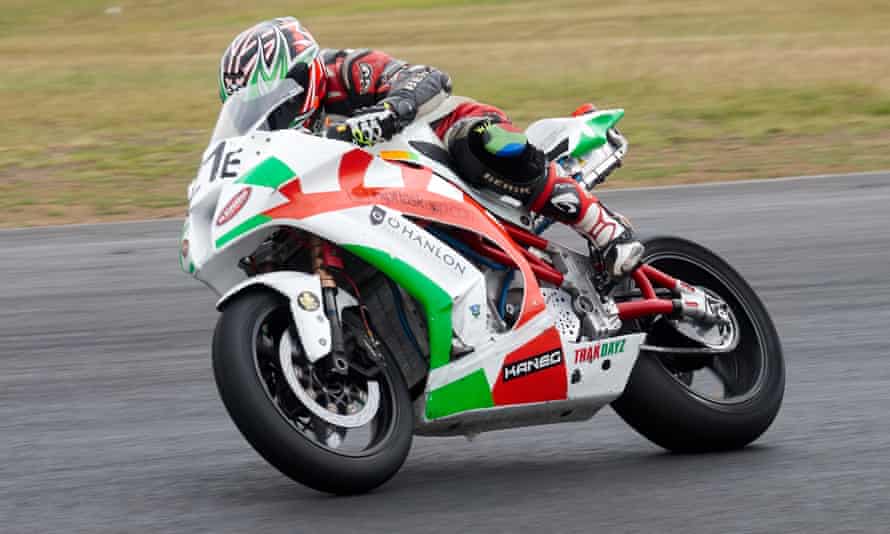
Thyron Van Vuuren on a Voltron-Evo electric motorbike at Queensland Raceway in 2016. Photograph: Tony Castley
The sound of engine silence
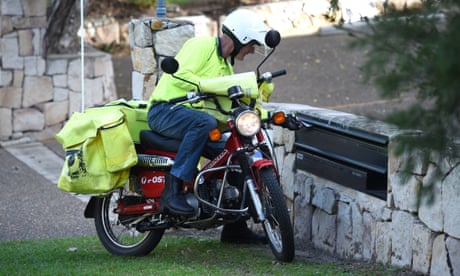
The quest for ever-louder motors contributes to this problem, with the removal of emissions gear a popular modification by bikers to give their exhaust systems extra resonance.
“There’s something guttural and intense about [conventional motorbikes] that reverberates through you,” says Michelle Nazzari. “Obviously there’s the carcinogenics and everything to think about, but there is a beauty to it too.”
Nazzari used to be a bit of a petrolhead herself, mucking around on farms with her two-stroke dirt bike, but then she dreamt up a plan to manufacture emissions-free motorcycles while riding through Colombia in 2010. She co-founded the Fonz Moto company and these days gets a different kind of thrill out of her rides.
When she gets a moment from her Redfern workshop, Nazzari wheels out one of her electric motorbikes and escapes two hours south of Sydney to Macquarie Pass.
“It’s one of the best rides in New South Wales,” Nazzari says of the winding hairpin turns that lead up from the coastline to the spectacular reaches of the Southern Highlands.
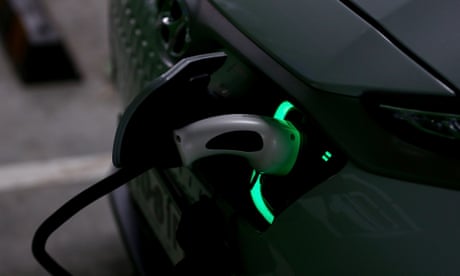
Without the distraction of engine noise or shuddering, Nazzari says she feels more present in the moment, with the only vibration coming from the texture of the road.
“Not having any vibration in the power train, you can really focus on the quality of riding, not mucking around with the clutch,” she says. “When you go into some real winding bits, you can really feel it.”
On the safety concerns related to the silence of the bikes, Nazzari counters that the quiet motor means the rider can be more alert to the dangers around them. “You can hear everything going on around you, and are a lot more present for that reason,” she says.
The
Sydney-based electric motorbike company’s social media feeds are
littered with plenty of what Nazzari describes as “emasculating
commentary” about the lack of vroom.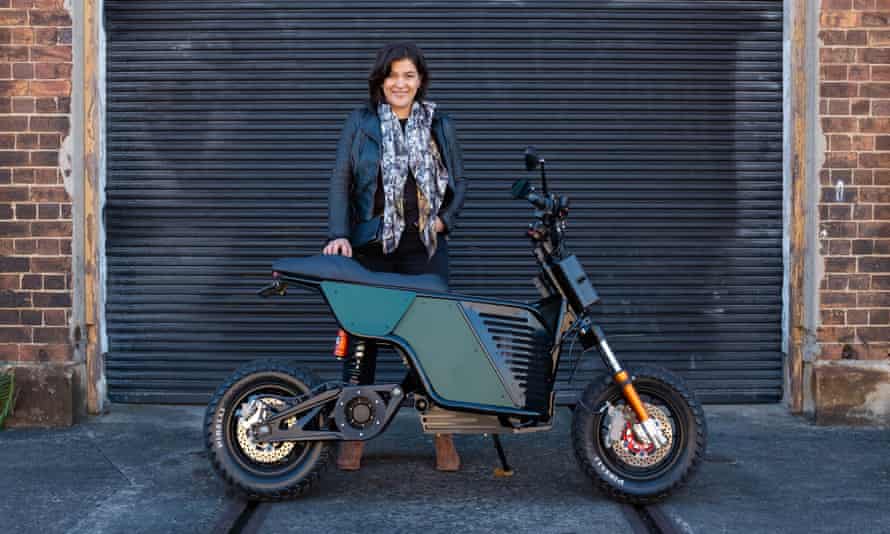
Michelle Nazzari, co-founder of the Fonz Moto company, with its Fonzarelli NKD. Without engine noise, ‘you can really focus on the quality of riding’. Photograph: Dennis Lindsay/Style Rider Motorcycles/Instagram
The comments veer from sexism and homophobia to a simple rejection of the silence. “Stuff that,” read one person’s take. “I’ll stick with my 2000 R1 that makes me smile when I hear it rev up … can’t call yourself a petrol head if you like electric vehicles.”
‘Range is a real issue outside cities’
Boris Mihailovic, one of Australia’s leading writers about motorcycle culture, doesn’t think he’ll ever flick the switch to electric. The burly, tattooed author of At the Altar of the Road Gods has been a vocal critic of electric models, which he says feel more like appliances than true motorbikes.
“Motorcycling is a very sensual thing,” he tells Guardian Australia. “I love the noise they make … The first thing many people do when they buy a bike is can the exhaust system and put on a more tuneful exhaust. Ducatis, Harleys – they live on the amazing aural pleasure they give.”
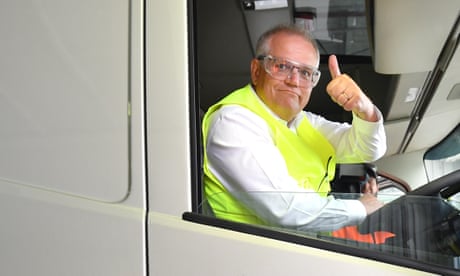
Mihailovic, who is advising Australian e-motorbike manufacturer Savic Motorcycles on how to appeal to true petrolheads, says he personally needs “that connection between exploding dinosaurs and the throttle”, and estimates at least half of bikers will be resistant to the new technology. “Motorcyclists are generally an ageing demographic, older guys 50 and over.”
So e-motorbike manufacturers, he says, are looking to younger generations. Mihailovic suggests they will be more interested in the emissions side of things, as well as the instant rapid acceleration that electric offers. “Younger people are happy to eschew the whole thunder-and-lighting thing, and just ride on the lighting without the thunder,” he says.
But a dealbreaker for many riders is the lack of charging infrastructure to facilitate the long haul road-trips so iconic in biker culture.
“Range is a real issue outside cities,” Mihailovic says.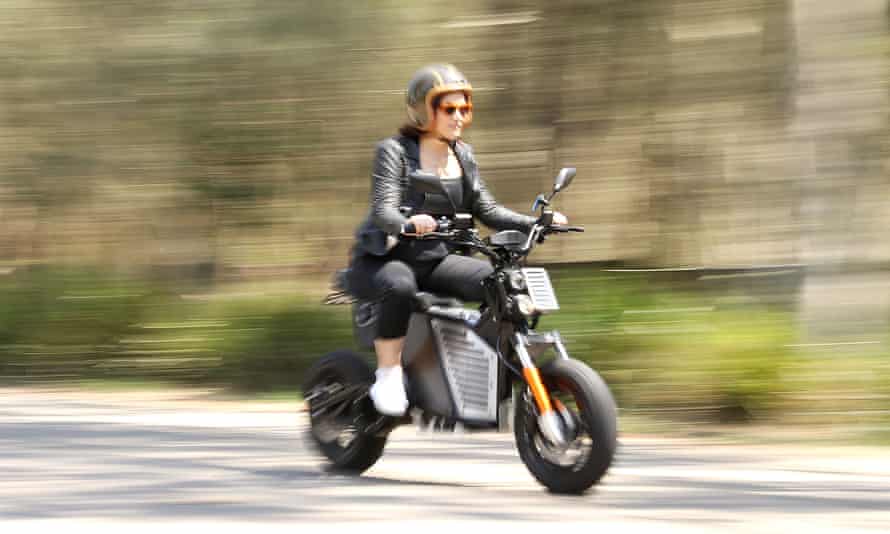
Michelle Nazzari e-motorbiking: ‘When you go into some real winding bits, you can really feel it.’ Photograph: Mark Kolbe/Getty Images
“Governments have spent the last 30 years demonising motorcycles as coffins on wheels,” he says. “The last thing they want to do is promote such small, congestion-busting, efficient ways of getting around after demonising them for so long.”
Jones is an electric motorcycle enthusiast himself, and was one of the engineers behind the Voltron-Evo that dominated Australia’s e-racing circuit in the mid-2010s. The ingenuity he saw on display in development of the racers has him convinced that Australia could have a thriving electric motorbike industry if it was supported.
Jones wants to see state government subsidies available for electric cars extended to motorbikes, and stronger emissions standards for conventional motorcycles. Others in the industry are lobbying for the removal of stamp duty – a policy already in place in the ACT and New South Wales.
Whatever support electric motorbikes get in the end, the open question remains whether bikers will be able to overcome the cultural attachment to the vroom.
Back in Adelaide, Adderton hasn’t totally ruled out getting an electric model. He’s heard they accelerate a lot faster these days, and could be good for city commutes. Adderton is also aware not everyone is quite so besotted with the rumble of engines as he is.
“I’ve got friends who have bike tracks in the hills and they make a lot of noise,” he says. “So yeah, I could see electric being good there, you know – out of consideration for the neighbours.”
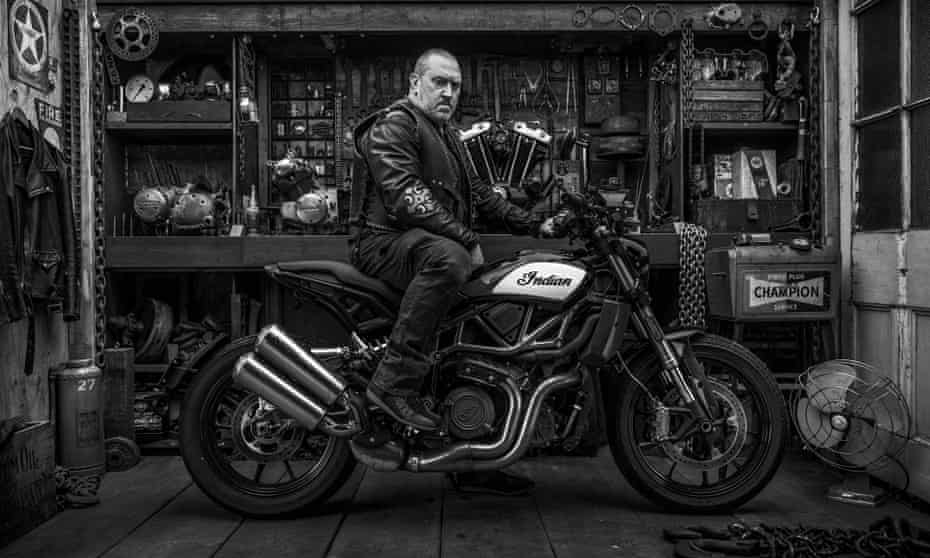
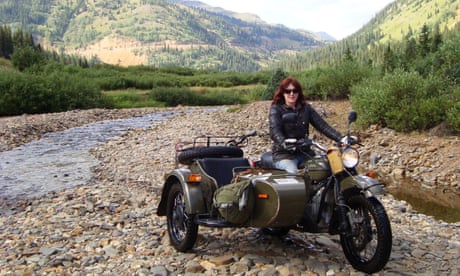
No comments:
Post a Comment